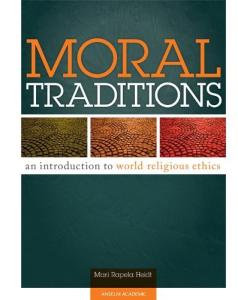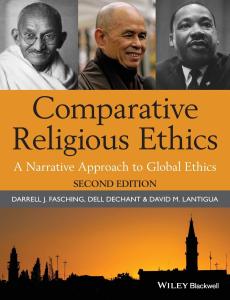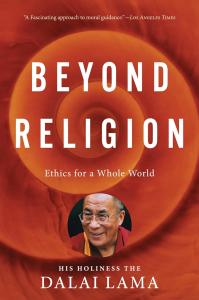Review
The book Ethics and World Religions: Cross-Cultural Case Studies by Regina Wentzel Wolfe and Christine E Gudorf offers a comprehensive and thought-provoking examination of the role of ethics in different world religions. Through case studies, the authors explore the ethical principles and practices of various religious traditions, including Christianity, Judaism, Islam, Hinduism, Buddhism, and Confucianism.
The primary goal of this book is to provide a deeper understanding of the diverse ethical perspectives within different world religions. The authors encourage readers to think critically and empathetically about various belief systems by presenting real-life situations and examining how different religions approach ethical dilemmas. The case studies also highlight the complex and dynamic nature of ethical decision-making and the ways in which religion and culture intersect to shape moral values and actions.
Through the lens of ethics, the book delves into a wide range of topics, such as social justice, gender roles, environmental responsibility, and the relationship between religion and politics. The authors also address contemporary issues and challenges, such as globalization and religious pluralism, and how they impact ethical considerations in a globalized world.
Overall, Ethics and World Religions aims to promote interfaith dialogue and understanding by exploring the ethical frameworks of different religions and their practical applications. It is a valuable resource for students, scholars, and anyone interested in understanding the role of ethics in shaping the beliefs and behaviors of individuals and communities across diverse religious traditions.
One of the key strengths of this book is its focus on case studies. This approach allows readers to engage with real-world examples and gain a deeper understanding of how ethical principles are put into practice within different religious contexts. The case studies are diverse and thought-provoking, covering various social, political, and cultural issues relevant to our global society.
For example, one case study examines the ethical implications of gender roles and women's rights in different religious traditions. The authors explore how Christianity, Judaism, and Islam approach issues such as women's leadership, marriage, and reproductive rights, highlighting the diversity of perspectives within each religion. Another case study explores the ethical considerations surrounding environmentalism and the role of religion in promoting sustainable living. By examining the beliefs and practices of Hinduism, Buddhism, and Confucianism, the authors shed light on the role of religion in shaping attitudes toward the environment.
In addition to the case studies, the book provides a thorough overview of each religion's ethical principles and teachings. This allows for a better understanding of the case studies and provides valuable insights into the foundations of each religion's moral code. The authors also explore the ways in which religious beliefs and values intersect with cultural norms and practices, offering a deeper understanding of how ethics are shaped by both religion and culture.
Furthermore, the book challenges readers to think critically about how different religions approach ethical issues and the potential impact of these perspectives on society. By examining the complex and sometimes conflicting views within each religion, the authors encourage readers to question their own beliefs and biases, promoting a more open-minded and empathetic approach to interfaith dialogue.
Overall, Ethics and World Religions is a thought-provoking and informative book that offers a valuable perspective on the role of ethics in different religious traditions. The book promotes a deeper understanding of the diversity and complexity of ethical perspectives within different religions through its case studies and exploration of ethical principles. It is a valuable resource for anyone seeking to understand the intersection of religion and ethics in our global society.






